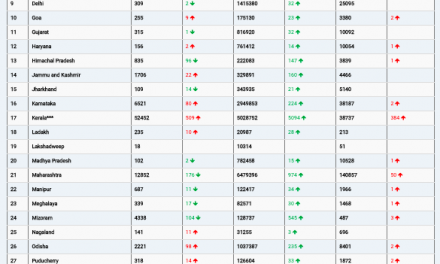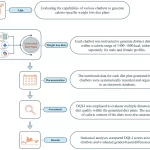What if your selfie could tell you something more than just how your hair looks today? What if it could reveal your biological age, regardless of the number of candles on your last birthday cake? Thanks to advancements in artificial intelligence (AI), your selfie may now hold clues about your health—and it’s sparking interest across the medical field.
The “Face Age” test, powered by AI, estimates your age based on the features of your face in a photo. This emerging tool is already making a significant impact in healthcare by offering insights into an individual’s true biological age, which could shape critical medical decisions.
Selfies Reveal Your Body’s True Age
Face Age isn’t just a passing trend; it’s becoming a valuable tool for medical professionals. In certain cases, it’s even influenced cancer treatment plans and predicted patient survival rates.
Dr. Raymond Mak, a radiation oncologist at Brigham and Women’s Hospital in Boston, recently demonstrated the power of this technology. He treated 90-year-old Lou Magelaner, a lung cancer patient who appeared far younger than his age. After using the FaceAge tool to analyze Magelaner’s selfie, the AI estimated his biological age at just 66, confirming Dr. Mak’s initial impression.
“My gut feeling was that he was closer to 70,” said Dr. Mak. The AI tool helped validate his assessment, and after several weeks of radiation therapy, the treatment proved successful.
How the FaceAge Tool Works
The FaceAge tool works by analyzing subtle facial features using an AI model trained on thousands of images. It detects signs of aging, offering a glimpse into a person’s overall health. Preliminary research shows that cancer patients often appear biologically older than their actual age, which may correlate with higher mortality rates. By identifying this, doctors can tailor their treatment plans more effectively.
FaceAge isn’t the only tool of its kind. Companies like Novos, a longevity-focused organization, provide free tests that evaluate facial features such as wrinkles and eye conditions to estimate biological age. Over 300,000 people, including Novos CEO Chris Mirabile, have used these tests as motivation for healthier living.
AI’s Growing Role in Healthcare
AI is gradually becoming a pivotal part of healthcare, going beyond FaceAge. AI tools are already detecting conditions like Parkinson’s disease through facial scans and identifying COVID-19 on X-rays.
“These digital tools are designed to augment clinical intuition,” said Dr. Mak, noting that FaceAge even outperformed doctors in predicting cancer patient survival rates. These advancements could help guide treatment decisions or alert patients to seek medical care sooner.
However, while these tools show great promise, they remain in the early stages of research.
Challenges and Ethical Concerns
Despite its potential, face-age technology is not without challenges. Many training datasets rely on images of wealthy individuals or celebrities, potentially leading to biases. As a result, these tools may struggle to provide accurate results for underrepresented racial groups. Additionally, poor lighting, low image quality, and cosmetic procedures can skew the predictions.
Ethical concerns also loom. Patients flagged as biologically older could face unconscious biases from healthcare professionals, affecting their treatment. Nicole Martinez-Martin, a bioethics expert at Stanford University, warns that such biases might result in unequal care.
“Patients identified as biologically older may receive less attention, which could affect their outcomes,” she said.
The Future of Face Age Testing
While face-age technology is still evolving, its potential impact on precision medicine is undeniable. By refining these tools, doctors could make better-informed decisions for individual patients. Researchers like Jing-Dong Jackie Han at Peking University are studying how facial features—such as drooping eyes or shrinking foreheads—may signal aging and health status. Some studies even suggest that a youthful appearance could be linked to healthier blood, connecting biological age with overall health.
A Tool for Healthier Living?
Consumer-friendly versions of these tools, like those from Novos, show that face-age technology may also have applications beyond the clinic. By offering insights into areas for improvement, these tools could encourage individuals to adopt healthier lifestyles. Novos CEO Chris Mirabile sees this as a powerful motivator: “It’s a great way to measure and motivate change.”
As AI continues to evolve, tools like FaceAge could redefine how we approach aging, health, and disease prevention. While challenges remain, the promise of Face Age lies in its ability to combine cutting-edge technology with practical, personal, and clinical applications. With further development, it could soon become an indispensable part of both healthcare and everyday life.











